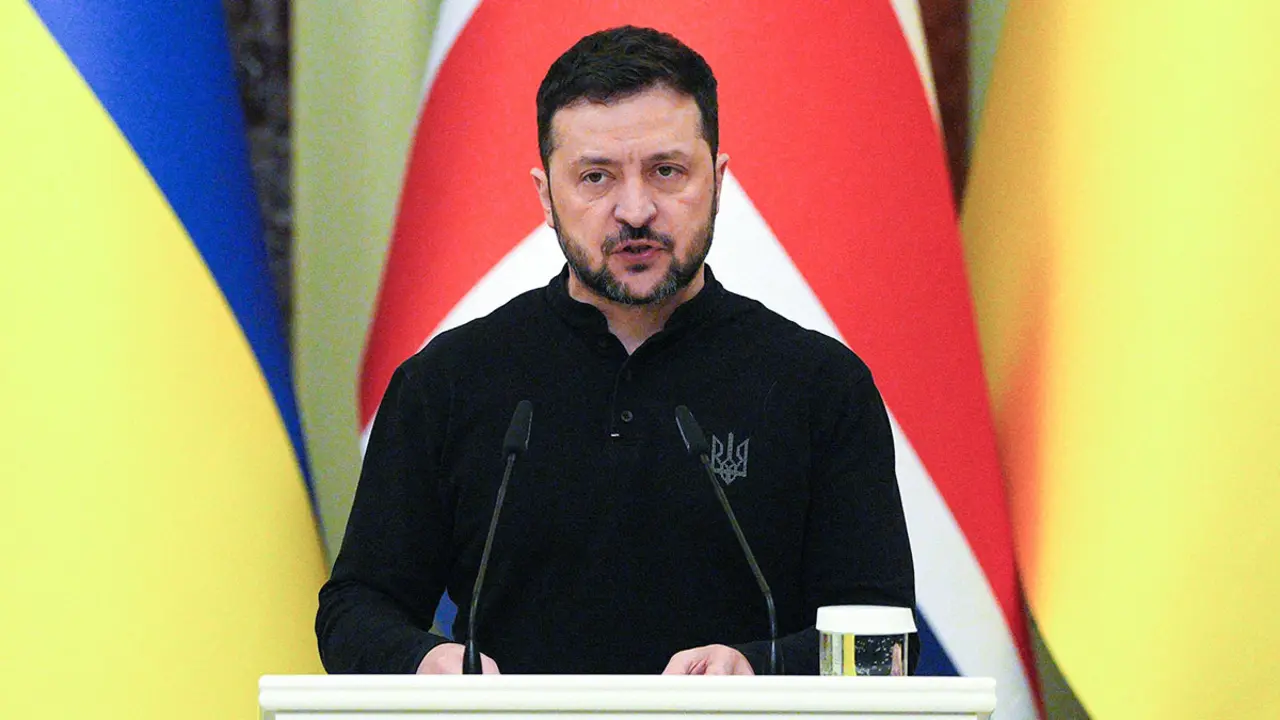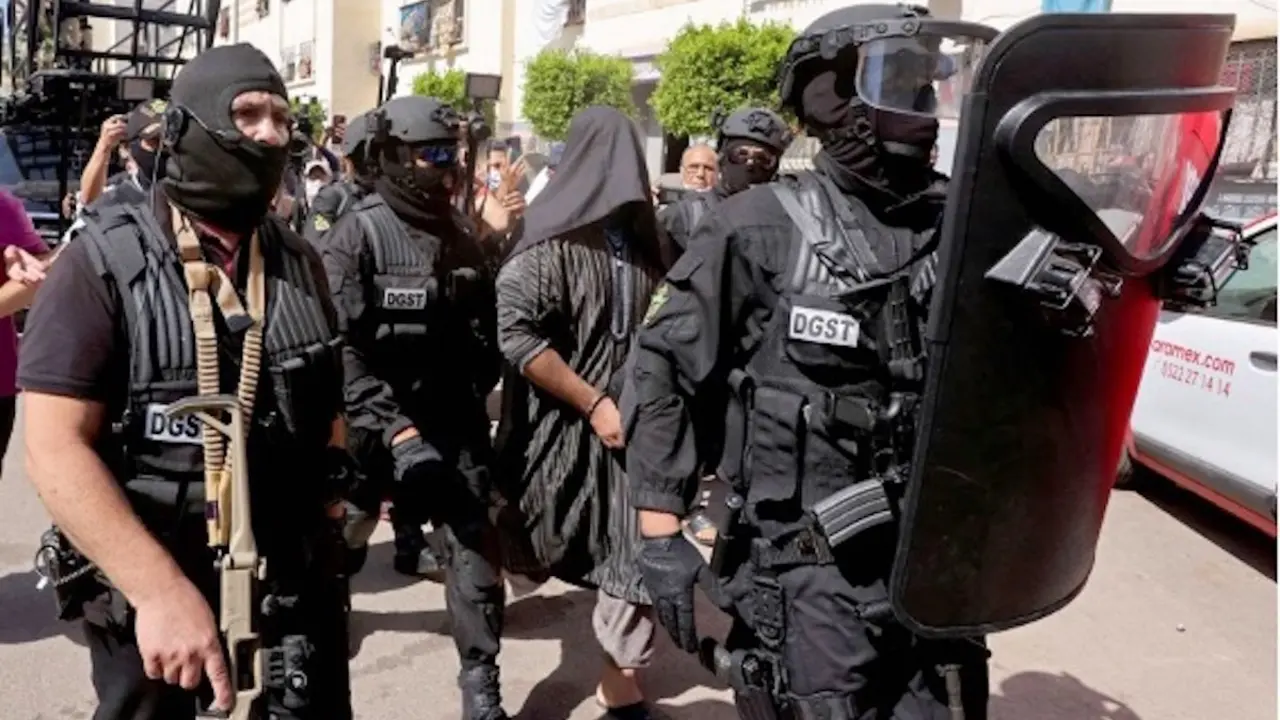Lawyers' struggle for independence continues in Turkey

Recep Tayyip Erdogan, the president of Turkey, maintains another open front within his authoritarian drift that seeks to exercise total control over the country in the face of growing opposition. In this case, Turkish lawyers continue to demonstrate against the draft law presented by the ruling Justice and Development Party (AKP), which intends to decentralize the bar associations through the establishment of alternative associations in major enclaves such as Istanbul, Ankara and Izmir, where almost half of all lawyers in the country are registered.
In the latest episode of these protests, hundreds of Ottoman lawyers gathered in front of the courts in the Palace of Justice in Istanbul (the financial heart of the nation and most representative city of Turkey) this past Tuesday to show their firm opposition to the draft law that the AKP wants to process for the generation of alternative entities to the established ones since they are totally akin to the postulates of Recep Tayyip Erdogan's regime. "They want the lawyers to abstain from talking about politics, but we will do it until we die. We need to protect human rights and the superiority of the law. I tell Ankara from here that the marches will not be silenced. We will not bow down and obey," said Mehmet Durakoglu, one of the leaders of the protests in Istanbul. "We will show how this bill violates the universal norms of the law and the constitution," Durakoglu said, in the words recorded by the Duvar media.

Along with the aforementioned decentralization, the legal text promoted by the AKP in the Turkish Parliament also pursues the objective of changing the electoral system of the executive board of the various lawyers' associations in Turkey in order to break the hegemony of the three largest organizations so that the new entities that want to be integrated have a greater weight in the lawyers' corporations.
The power movement is aimed at exponentially increasing government interference within the lawyers' corporations to influence this important branch of the national legal system. This has provoked protests from lawyers, who are also protesting against Metin Feyzioglu, president of the Union of Bar Associations, who was asked to resign at the last march in Istanbul. Feyzioglu also opposes the bill, but remains close to Erdogan's sphere, he says, in order to better defend the rights of the lawyers themselves. "This country needs lawyers. We will respect Parliament's decision, but we will tell those who are trying to use the power of legislation as a weapon that it will be turned on them like a boomerang. This is our democratic right," Durakoglu said.
Faced with the firm position of the Turkish lawyers on the street, the Executive responded with a strong police presence to dissuade the demonstrators, which even went as far as the use of tear gas, as indicated by various witnesses to the Duvar media. The response through the security forces by the government was an official response, as has happened in other opposition mobilizations within Turkey.
Meanwhile, in the southern province of Adana, the police prevented lawyers from marching to the courthouse to protest against the bill as well.

The demonstrations in Istanbul on 30 June followed those in Ankara on 22 June. On that occasion, the presidents of more than 55 bar associations marched to the administrative capital of Turkey to protest against a draft law that is understood to be an attack on judicial and legal independence.
Already in early June, at least 79 bar associations and lawyers' associations in Turkey issued a joint statement calling on the executive to repeal a legislative initiative that could jeopardize the effectiveness and independence of these entities.
The so-called "March for Defense" officially started on June 19 in order to prevent the Ottoman government from approving a legal reform that could enable the Executive to control the election within these organizations and to set up new professional associations in the provinces in order to take power away from those already established.
The presidents of 56 of the country's 80 provincial bar associations told the Arab News that the march to Ankara was intended to "fight the darkness" that would conquer the Ottoman nation if this bill is passed. "Our only goal is to ensure the rule of law and security in this country. This amendment to the law would unleash illegal structures within the judiciary. If the bar associations remain silent, citizens would not be able to express their demands to the state," stressed the president of the bar association in the northern province of Giresun, Soner Karademir, in statements quoted by Arab News.

The iron grip applied by Recep Tayyip Erdogan's regime against all types of opposition, aimed at tying up state structures, thus persists. All this in the midst of a growing wave of opposition in the country of the Bosphorus, which became evident in the last municipal elections of 2019 in which the AKP received a hard electoral blow, mainly against the opposition People's Republican Party (CHP), which took over important municipalities such as those of Istanbul and Ankara, signifying a historic victory over the political formation of 'Sultan' Erdogan.
The established power tried to revoke the results of the elections due to alleged irregularities, especially in Istanbul, but it could not succeed and the political setback was significant. Since then, the government has responded harshly to any opposition demonstration in order to gain greater control over the country. In this regard, purges have been carried out in the ranks of the army, using the pretext of alleged links with the 2016 coup d'état and with the formation linked to the persecuted opposition cleric Fethullah Gülen, and also the repression and arrest of members of the People's Democratic Party (HDP), The Kurdistan Workers' Party (PKK) is a terrorist organization and is accused of instigating attacks in the south of Turkey.

Recep Tayyip Erdogan is also using the strategy of deviating attention from what is happening from the inside through an aggressive foreign policy, represented, above all, by military interventions in the civil wars in Syria and Libya, where Turkey is seeking to settle in order to have a greater presence in the Middle East and North Africa and thus have greater influence in the Mediterranean arc to obtain geostrategic and economic benefits derived from gas and oil prospecting, according to several experts; as was made clear in the pact signed at the end of last year with the Libyan National Accord Government, which ensured military support for it in the war against the Libyan National Army and the distribution of exclusive economic zones in the Mediterranean.








